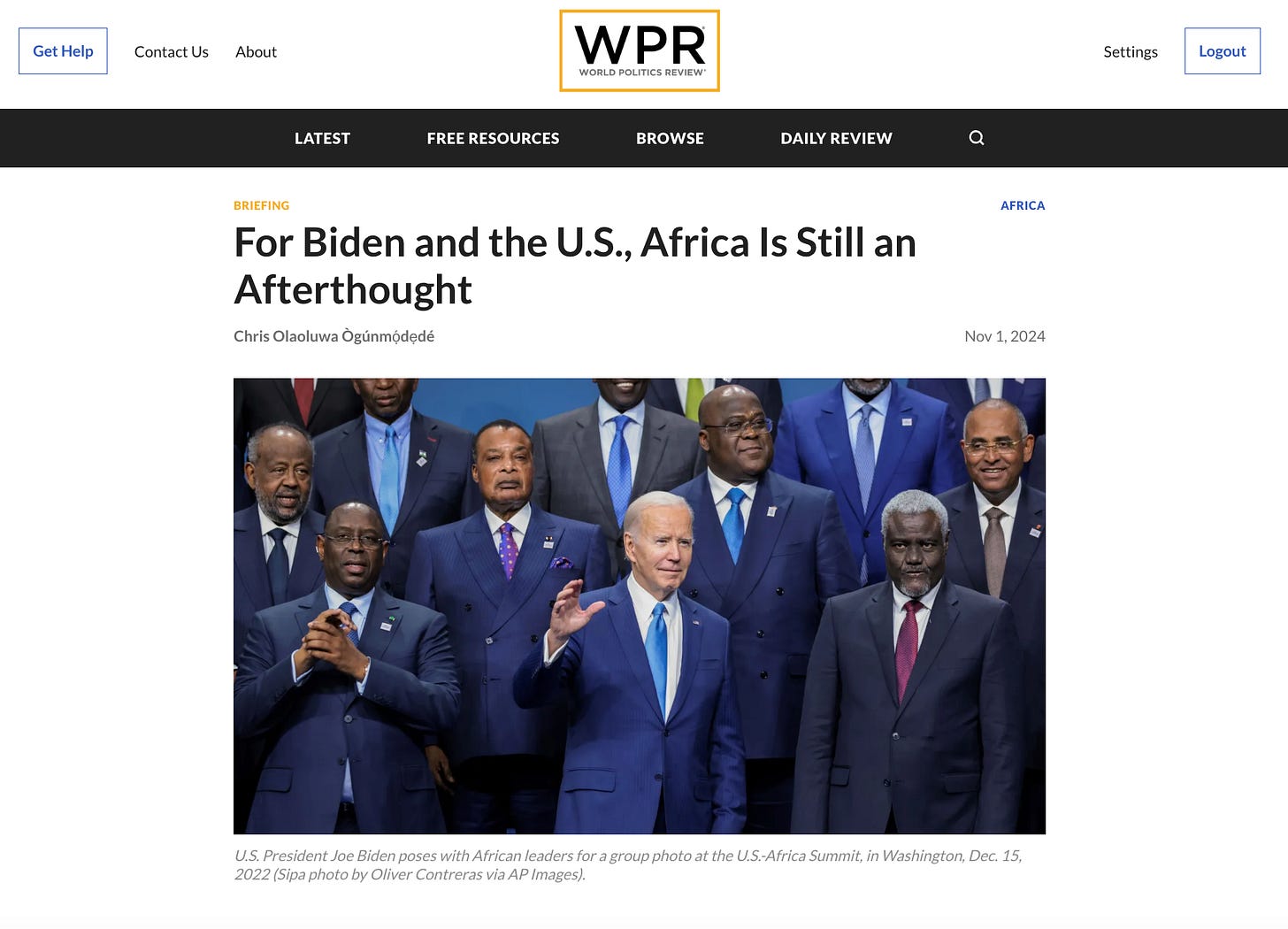What is Joe Biden's legacy in Africa?
Biden's engagement with Africa did not differ dramatically from that of his predecessors despite his administration’s pledge to "reset" Washington's ties with the continent.
Overall, the outcomes of Biden’s policy proposals consistently failed to match the lofty rhetoric he and his officials aimed at African governments and their publics, on issues ranging from his democracy promotion agenda to his administration’s pledge to expand commercial relations with African nations. A major reason for this dissonance—but by no means the only one—is that Washington’s outreach to the continent is driven more by cynicism and an irrational apprehension over perceived gains by China and Russia than a desire to pursue a genuinely robust, sustained partnership with Africans. In that regard, Biden was not much different than his recent predecessors, despite the insistence of his administration’s officials to the contrary as well as their pledge to chart a new course in Washington’s relations with the continent. Their own words and deeds—from their opposition to common African positions on key global issues to their inability to make an affirmative case about a partnership with the U.S. without casting aspersions on Africans’ engagement with China—signaled that Washington still viewed the continent as a tertiary geopolitical battleground and was interested in engagement only on those terms.
From my latest piece in World Politics Review, in which I reviewed and assessed U.S. President Joe Biden’s legacy in Africa.
It’s safe to say that longtime readers of my work and wider commentary would not be surprised by my verdict if they read the piece. I am an avowed critic of U.S. policy toward Africa, which generally has not changed much since the continent’s nations gained independence from European colonizers. Specifically about Biden, I have been unsparing in my reproval of the listlessness of his administration’s engagement with Africa including the bare-minimumism that has characterized Washington’s outreach to the continent since 2021. Perhaps because Biden generally avoided the rhetorical extremes of his immediate predecessor, his officials seemed to believe that “not Trump” would be a sufficient roadmap for improved diplomatic relations with a continent they claimed was important to Washington.
In ways large and small, the Biden administration signaled to Africans that they were not a top priority for it. Senior-level engagement between U.S. officials and their continental counterparts as well as the publics they serve was sparing and largely restricted to visits Washington appeared to think were accomplishments in and of themselves. The administration simply did not bother to invest much time in cultivating relationships with important continental actors like Nigeria, South Africa and Ethiopia who, whatever their shortcomings, are still crucial anchors of their regional neighborhoods. On the occasions that the Biden team did engage with the continent, it was always obvious to Africans — government officials and citizens alike — that the specter of China and Russia was the main factor influencing Washington's outreach.
As I wrote in the article, I do not expect a significant improvement in Washington's relations with African countries regardless of who wins next week’s presidential election. There is no major constituency in the U.S. demanding better relations with the continent, not even the sizable African diaspora there. Unlike many other commentators on the topic, I do not believe Africa necessarily needs to become a core U.S. priority. Washington just does not possess the bandwidth, range and interest necessary to have the kind of meaningful impact at scale that Africans need from such a partnership. A slight improvement could nonetheless make a difference, and African governments would have to figure out what that looks like.
Here is a link to the entire piece.






I’m pretty sure things largely went as was actually intended. And unfortunately the current centers of the USA’s and, deeply connectedly, the World’s political economy may require increasing amounts of resource/capital extraction just to keep their structures together…